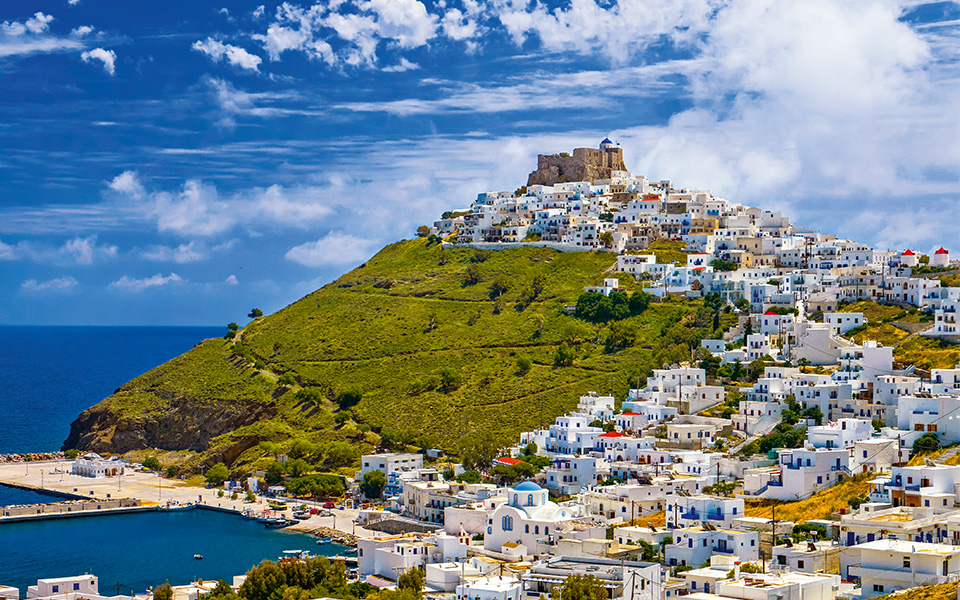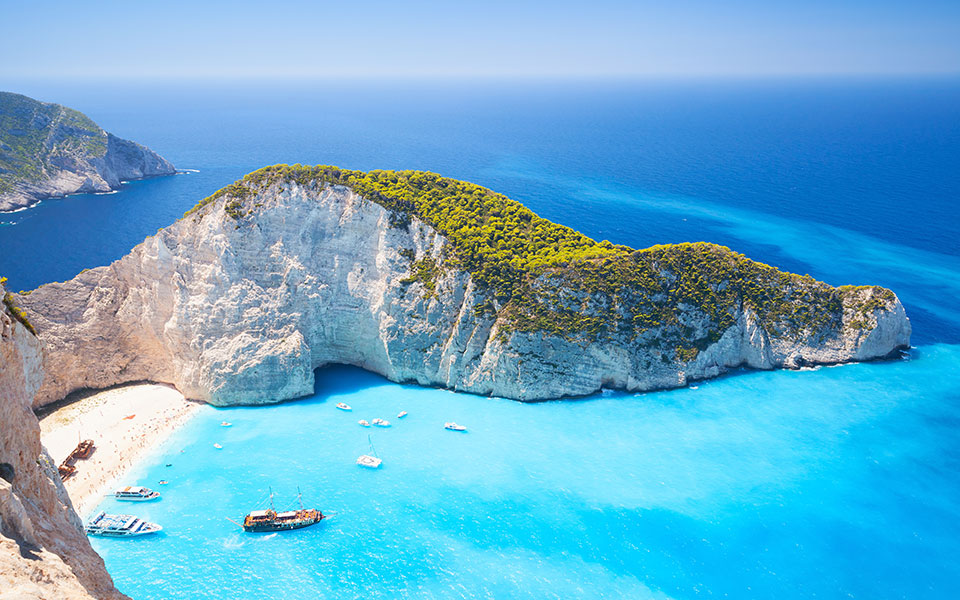The Greek government is placing emphasis on “unlocking” the international tourism markets of the US, Britain and Russia, with agreements similar to those already in place with Israel, in order to bolster Greek tourism.
Barring any unforeseen events or a worsening of the pandemic, Greece plans to reopen its borders on May 14, one month and a half earlier than it did in 2020. The government has announced that arrivals of foreign leisure travelers will be allowed without the imposition of quarantines but subject to certain conditions.
The government has already launched a “soft opening” pilot program, accepting travelers from Israel and, to a lesser degree, from Russia. Up to 10,000 Israelis and 4,000 Russians per week have already been allowed entry, without quarantine, but subject to proof of vaccination or a negative test. These quotas are expected to increase from April 19 onwards.
“This year, we’ll open a month and a half earlier, and we have tools in our arsenal that we did not have last year,” says the Minister of Tourism Harry Theoharis who, in the weeks ahead, has planned to visit the United States with the aim of restoring commercial air traffic connections between the two countries. During his stay there, Theoharis will meet with representatives of major airlines operating intercontinental routes, in order to encourage them to relaunch their schedules with sufficient capacity to meet demand.

© Perikles Merakos
With a negative test
A week ago, the Center for Disease Control (CDC) in the US announced that Americans who have been vaccinated can travel abroad without worrying too much about the risk to themselves and without having to go into quarantine on their return, unless otherwise decided by their local state authorities. They must, however, test negative for the virus before returning to the US and take another test three to five days after their return.
If travel from the US to Greece becomes possible, it is expected to significantly boost Greek tourism, especially that of Athens; Americans are among those foreign travelers with the highest per capita expenditure and, in 2019, the US was high in the Bank of Greece ranking of those countries that brought the largest travel revenue, at over €1 billion.
“In addition to the European Union’s green digital certificate and the recognition of the vaccination certificates of Israel, Russia and Britain that we have already launched,” says the minister, “we are in contact with the US Embassy over the recognition of the vaccination certificates from the CDC in the US.” At the same time, he adds, “We have full availability of diagnostic tests as well as tested health protocols for operating our hotels. Moreover, Greece gained a reputation as a safe destination last year.”
However, the key to capitalizing on this reputation will be the country’s ability to control the pandemic so that it can be classified as the so-called ‘“green countries” of both the European ECDC organization and the “traffic light” system adopted by Britain. On the basis of announcements to date, travel abroad will be allowed for Britons from May 17, with any restrictions (tests to be taken, or quarantine period after return) to be determined by the color status of the country visited.
Similar color codes are expected to be adopted by other countries, establishing the restrictions imposed on travelers on their return from abroad, in this case from Greece. In other words, it isn’t only a question of how easily vaccinated travelers, those with negative molecular tests or those having acquired immunity from recovery will be allowed to enter the country. It is also whether or not those who come to Greece have to go into quarantine on their return. This is the main disincentive for traveling abroad and it will largely determine whether Greece achieves its target of increasing its tourist visits and revenues by more than 50 percent over last year or of restoring tourism activity to 40-50 percent of that achieved in 2019.

© Shutterstock
Addressing the general meeting of the shareholders of the Bank of Greece this week, the president of the Association of Greek Tourism Enterprises, Giannis Retsos, stated that “given how the situation has developed in the first quarter of the year, our highest targets are for the second half, with revenues estimated between 40-50 percent compared to the year 2019.” However, he added: “Any predictions should be realistic, based on evidence and adaptable according to developments… [since] by looking at the moves and decisions that Europe has been making, we can see that everything can change at any time.”
Last year’s tourism activity was only 23.5 percent of what took place in 2019. This year, that figure is expected to increase to 40 percent. Historically, the main tourist markets from which Greece draws its visitors are Germany, the UK, France, the US and Russia. This year, in addition to “unlocking” these major markets (efforts towards which have already begun), Greece is also trying, the pandemic permitting, to diversify into new markets, including Israel and the Balkans. The recent visits of Theocharis to Romania and Serbia are part of these attempts.
Theocharis listed five “lines of defense” for the opening of tourism when speaking last week in Parliament:
1) The verification of steps taken by travelers before their arrival in Greece – either vaccinations or negative tests.
2) The activation of the “EVA” random-testing system, in order to detect positive cases at the borders, a system for which the country has gained international recognition.
3) Quarantine hotels, so that Greece can isolate any cases.
4) Vaccination of workers in the hospitality industry, which will begin as soon as the vaccination of elderly citizens and those with pre-existing health conditions is completed.
5) Strict adherence to health protocols.
The health minister clarified that “what will apply to Greek citizens will also apply to tourists. All this speculation concerning the free movement of tourists is false…. We’re not going to discriminate. Our country has specific rules – based on the recommendations of experts – that apply to all tourists and to all Greek citizens, and this will continue to be the case this summer.”












